Narrowing Women and Girls’ Health Equity Gap
By Cady Susswein
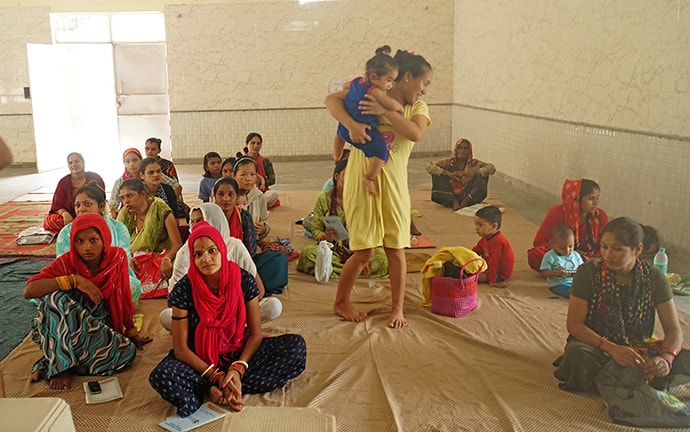
Women waiting for pre- and post-natal care at a Sukarya health clinic, Haryana, India. Photo: Joel Meyers
When we think about global health, we might not specifically think about women’s health, but women spend 25% more time with significant health issues than men. This time adds up to approximately nine years over a lifetime – nine years! The term Disability Adjusted Life Years, or DALYs, represents the loss of one year of full health. This means collectively women have lost 75 million DALYs, or years of full health. That’s astounding. Why is this?
A major part of it comes from a lack of effective health interventions designed specifically for women. For instance, only 4% of pharmaceutical R&D spending goes to female-specific conditions versus approximately 75% of National Institutes of Health funding that goes to a disease affecting one gender goes to male diseases. To add to the issue, 75% of clinical trial participants are men.
Economically, the benefits of closing this health gap are immense. For every dollar spent, there’s a potential $3+ return in economic growth, which would boost the global economy by more than $1 trillion a year by 2040. Global WA partners are doing incredible work to close this gap as part of a growing commitment to change the status quo.
Innovation and Healthcare Systems
To start, in the last several years the Bill & Melinda Gates Foundation established Gender Equality as a major pillar of their work and a program team focused exclusively on women’s health innovations. As part of this effort, Gates leads the Innovation Equity Forum, a group of 250+ experts in research and development (R&D) of women’s health that authored the 2023 Women’s Health Innovation Opportunity Map. Though not a map per se, the document identifies 50 critical opportunities across the R&D ecosystem to catalyze women’s health innovations, from data and modeling to research design and methodology.

According to CARE, approximately 1 in 49 women in poor countries die from preventable causes related to pregnancy, and in Sierra Leone, it’s 1 in 17 women. One of CARE’s 2030 goals is for 30 million more women to be able to access their right to sexual and reproductive health. Their Right to Health strategy aims to build resilient, equitable, and accountable health systems that can deliver the health solutions we already have on this earth to everyone who needs them. In Bihar, India in particular, a project with the Gates Foundation focused on reducing the rates of maternal, newborn, and child mortality and malnutrition, and improving immunization rates and reproductive health services across the state. Their work reduced the maternal mortality rate by almost half in 16 years.
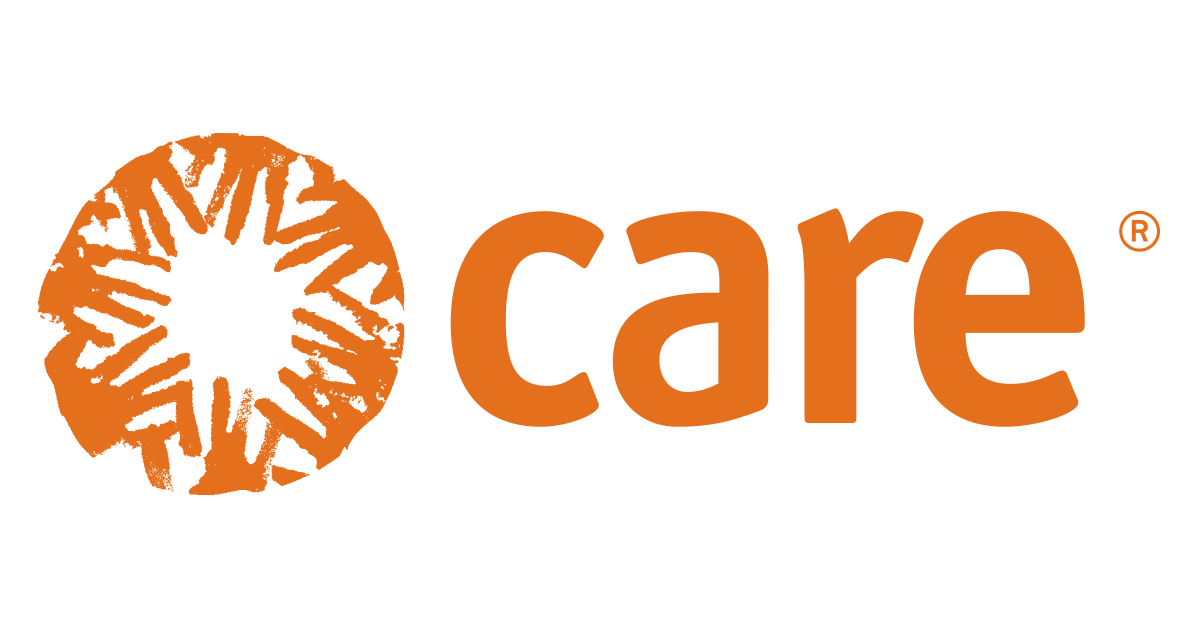
The Kati Collective’s work revolves around developing equity-focused strategies. Malaria No More came to them with the hypothesis that fighting malaria through a gendered lens could improve malaria eradication while also enhancing gender equity. Kati Collective set out to research and test this theory and the effects of malaria on women. Their research showed that women spent significant time caregiving for malaria cases, four times as much as men. Better yet, they found that malaria eradication is one of the most effective levers for reversing poverty for women. In Uganda, for example, the 3.3 million children under 5 treated for malaria annually creates an economic impact of $333 million for their families.

Cancer
For the Fred Hutch Cancer Institute, education and awareness are an important part of reducing disparities in cancer diagnosis and outcomes around the world. Their Breast Cancer Initiative aims to reduce disparities globally for 2.5 million women by 2025 through information and outreach. Similarly, they founded the Breast Health Global Initiative with Susan G. Komen, which is an alliance of health organizations, companies, and providers that develops affordable and culturally appropriate guidelines for breast health and treatment in low- and middle-income countries. In a partnership with the Uganda Cancer Institute, the UCI-Fred Hutch Cancer Centre in Kampala serves the larger region and sees 20,000 patients each year.

Last year, the Max Foundation launched the Max Access Solutions program to treat advanced breast cancer in nine Countries across Africa, Latin America, and South Asia with plans to expand this year. The organization’s mission is to accelerate health equity by delivering medication, technology, and services to cancer patients who are not otherwise able to get the care they need. Why breast cancer? It’s the leading cause of death for women globally as 80% of patients in developing countries are diagnosed at the metastatic stage and have poor access to treatment when they are finally diagnosed. Max is working with multiple partners to implement the program through its Humanitarian Partnership for Access to Critical Treatment (Humanitarian PACT) for Advanced Breast Cancer.

Community Health
Water and sanitation are also an issue that disproportionately affects women and girls, who typically bear the responsibility of fetching water. The Starbucks Foundation’s goal is to empower 1 million women and girls in coffee-, tea- and cocoa-growing communities by 2030 after they blew past their 2018 goal of 250,000 women in a little over half the time. Notably, their programs promote water, sanitation, and hygiene (WASH) as well as women’s leadership and economic development in 17 countries.

More than twenty years ago, Global Communities established an inpatient facility for women with high-risk pregnancies in Huehuetenango, Guatemala called Casa Materna (Mother’s House). In partnership with a local association of midwives and the Ministry of Health, the center trains community health workers to identify women with high-risk pregnancies and refer them to Casa Materna for care. The program has provided more than 100,000 indigenous Mayan women with culturally sensitive and high-quality reproductive health care and facilitated more than 13,000 safe deliveries.

Sukarya believes that society cannot progress without healthy women and children. Their Rural Community Health Action program tackles this issue from the lens of anemia and malnutrition in Haryana and Rajasthan, India. Covering 60 villages in the region, it focuses on strengthening detection, treatment, and prevention of anemia and malnutrition, as well as delivering immunizations and WASH components.
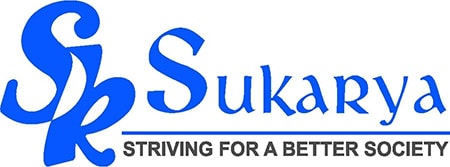
The Hunger Project looks at health from a holistic lens, through hunger, nutrition, water, and sanitation, and more. But the key to their approach is starting with women as they are typically the primary bearers of responsibility for the health and nutrition of a family, yet often lack the resources, knowledge, and freedom to fulfill this responsibility to the best of their abilities.
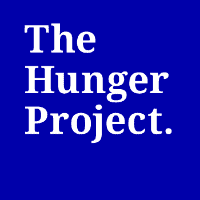
Emergency Situations
During an emergency like a natural disaster or war, breastfeeding might be the last thing on some people’s minds. But for World Vision, one of their primary focus areas is preventing malnutrition for infants, children, pregnant women, and breastfeeding mothers.
World Vision partners with ministries of health to establish safe spaces to breastfeed and find counseling, health and nutrition education, and breastfeeding support. Take Srijana who was seven-months pregnant when an earthquake hit Nepal in 2015, barely getting out of her house before it collapsed. World Vision not only helped her maintain her nutrition during pregnancy but gave her a space to safely breastfeed her “survivor” baby and develop the skills they needed to set themselves out on the right path.

Like World Vision, Americares also works to protect pregnant women in emergency situations. In Ukraine, they provide emergency obstetric kits for mothers forced to give birth outside of traditional health care settings. And in Colombia, thousands of expecting mothers have been traveling from the humanitarian crisis in Venezuela to seek basic health care at Americares clinics.
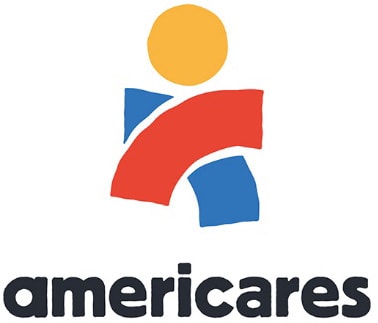
While these are just a selection of Global WA organizations at the forefront of the fight on women’s global health, they demonstrate the growing sea change in global health, shifting the focus to a world of health equity. Recognizing and addressing the unique health needs of women (who have a proclivity to depression and anxiety over men) is essential for achieving sustainable development goals and ensuring social and economic progress. Addressing women’s health issues can have a ripple effect, positively impacting future generations and creating healthier, more equitable societies where all individuals can thrive.
The following additional GlobalWA members are providing quality healthcare services and support through their programs in low- and middle-income countries where they work.
We envision a world where every person has access to quality health and education services, no matter where they live. We bring this to life by delivering leading programmes across Maternal, Newborn and Child Health, and Remote Community Development.
Kati Collective is a global consulting collaborative focused on understanding, analyzing, and advancing health and gender equity as an essential means of achieving global development goals. We believe in data-driven approaches and that many perspectives, both local and global, must come together for impactful and equitable systemic change.
Kati offers tailored approaches for strategy development, evaluation, process management, design, facilitation, management of communities of practice, and co-creation with local organizations.
Panorama Global is a platform for social change. We partner with changemakers to create an equitable and sustainable world where all people thrive. Our initiatives span global health equity, climate change and sexual and reproductive health and rights (SRHR), adolescent mental health, and gender equity, among others. Learn more about Panorama’s work.
The Type 1 Diabetes Community Fund aims to unlock resources for historically underfunded community-based organizations (CBOs) in low- and middle-income countries while uplifting their work and unveiling insights into the challenges of existing health systems and barriers faced by people living with type 1 diabetes. Learn more about our grantee partners.
Climate change is the greatest global health threat of the 21st century, with severe implications for women and girls’ sexual and reproductive health and rights (SRHR). Panorama is leading an initiative to bridge the gap in understanding the impacts of climate change on SRHR, an issue area frequently overlooked by researchers, policymakers, and funders. This work includes grantmaking to support community advocacy in the Global South, facilitating a funder Community of Practice, and building an evidence base in partnership with YLabs to advance climate-resilient women’s health and SRHR solutions.
Planned Parenthood Great Northwest, Hawai’i, Alaska, Indiana, Kentucky (PPGNHAIK)
PPGNHAIK draws upon its expertise as a leading provider of sexual and reproductive health services and comprehensive sexuality education to deliver capacity building support to partner organizations in low- and middle-income countries. Through these partnerships, PPGNHAIK’s Global Programs department supports efforts to improve sexual and reproductive health outcomes for young people.
Save the Children believes every child deserves a future. In the US and globally in more than 100 countries, the organization gives children a healthy start in life, the opportunity to learn, and protection from harm. Save the Children does whatever it takes for children, every day and in times of crisis, transforming their lives and the future we share.
SIGN Fracture Care supports surgeons in low- and middle-income countries (LMIC) by providing orthopaedic education opportunities and donating instruments and implants appropriate for use in austere settings that are designed and manufactured at our Richland, WA headquarters. This enables local surgeons to provide affordable and effective care for patients with long bone fractures.
The gold standard of long bone fracture care is to secure an intramedullary nail in the canal of the bone to stabilize the fracture. By making this treatment available in LMIC, SIGN Fracture Care enables people to quickly recover from fractures and return to health and full mobility. These patients avoid permanent disability and return to work, thus reducing the level of poverty in their community.
Thanks to support from our donors, we provide orthopaedic implants at no cost to hospitals or patients, which makes surgery to repair fractures accessible to impoverished patients. We partner with 431 hospitals in 57 countries and have helped more than 433,000 people recover from fractures over the past 25 years.
Spreeha empowers lives in Bangladesh through compassionate and sustainable solutions to its toughest challenges. At the forefront of this mission is SNEHO, meaning “affectionate” in English, Spreeha’s flagship health program. SNEHO seeks to bolster the nation’s health system by establishing a network of 100 community-led urgent health centers strategically positioned in underserved areas.
Each center, led by trained local health professionals like paramedics, nurses, or medical technologists, offers comprehensive services. These include doctor consultations, sample collection, pharmacies, first aid, and vaccination facilities. Additionally, the program extends its reach to home-bound patients through telemedicine and home visits. Ensuring affordability, services and products are provided at highly discounted rates, with patients receiving e-health records for informed decision-making.
Spreeha’s vision extends to achieving universal health coverage by leveraging technology-enabled hyper-local urgent health centers. By doing so, it aims to alleviate the strain on the overall health system while ensuring quality, accessibility, and affordability for all. Through SNEHO and similar initiatives, Spreeha is actively reshaping the healthcare landscape in Bangladesh for the better.
The Hunger Project facilitates individual and collective action to transform the systems of inequity that create hunger and cause it to persist. We work with rural communities in Africa, Latin America and South Asia, local governments and other health-focused civil society organizations to ensure access to healthcare services and education. In many of the countries where we work, the government is mandated to provide health services. In these cases, our teams work with communities to strengthen their health system through community-led advocacy and accountability. We create platforms for government health workers to leverage and expand their reach. Additionally, through our programs, we equip local volunteer leaders with information, training and materials to go out and educate their communities on key health topics, including nutrition, HIV/AIDS and malaria prevention and treatment, immunizations and maternal and childhood health. We believe that access to adequate healthcare is key to creating a world without hunger.
The most pressing global health challenge is the inequities in access to healthcare. Together, we can alleviate unnecessary suffering and premature death. We must be focused and committed to overcome barriers and ensure universal access for all. Healthcare should not be a privilege – it’s a fundamental human right.
At VillageReach, we are driven by a vision of a world where each person has the health care needed to thrive. We work with governments, the private sector, partners and communities to build responsive primary health care systems that deliver health products and services to the most under-reached.
Responsive systems ensure that health care services are available when and where they are needed, can adapt to changes in demand, and better absorb shocks and stresses, and routinely factor and respond to the needs and preferences of communities.
At VillageReach, we champion responsive primary health care (PHC) and focus our execution in those areas where our technical expertise is the strongest—supply chain innovations that get medicines, vaccines and equipment to people; tech-enabled primary health care that leverages solutions like telehealth that place health information in the palm of a hand; public and private sector engagement including supporting sustained financing of innovation; health information systems that illuminate who is and is not accessing PHC; and collaboration and support of health workers serving under-reached communities.
As a locally driven and globally connected organization working across Africa, VillageReach’s primary goal is to reduce inequities in access to quality primary health care for 350 million people by 2030.
Yemen Relief and Reconstruction Foundation
The Yemen Relief and Reconstruction Foundation (YRRF) plays a pivotal role in addressing the dire public health crisis in Yemen. Despite significant funding cuts and the complex political situation, YRRF remains dedicated to alleviating the suffering of Yemeni civilians. In 2023, YRRF implemented various humanitarian projects, including the distribution of food rations to 6,000 families during Ramadan, benefiting 34,000 individuals, and delivering meat to 6,000 families during Eid al-Adha.
Furthermore, YRRF’s efforts focused on supporting malnourished children. The foundation supported multiple malnutrition centers across Yemen, providing critical support to approximately 950 children monthly. YRRF offered immediate nutritional support and extended care for six months post-treatment to prevent relapse. Additionally, YRRF distributed hygienic materials and conducted workshops to educate families on proper feeding practices. YRRF also distributed 750 water filters, ensuring access to clean water.
YRRF also developed a culturally appropriate curriculum to train teachers and school counselors in identifying and addressing PTSD among middle and high school students. Moreover, YRRF launched a vaccination awareness campaign to combat the resurgence of preventable diseases like measles and polio., especially with the spread of dis- and misinformation about vaccines.
YRRF’s comprehensive approach to public health in Yemen demonstrates a steadfast commitment to improving the well-being of vulnerable populations amidst ongoing conflict and economic hardship.